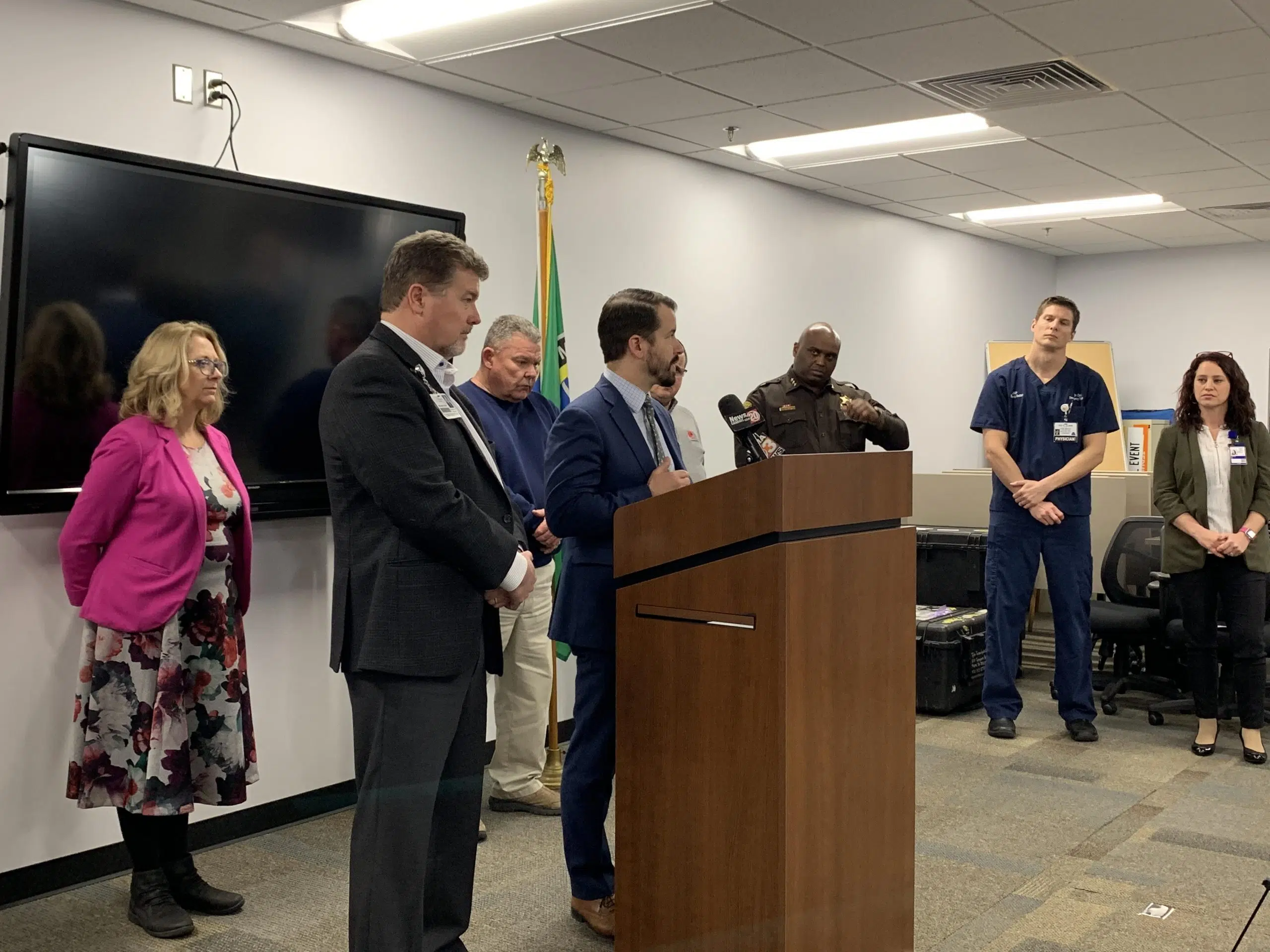March 13, 2020 – Community and health leaders in Decatur and Macon County have announced a Crisis Communications Team in response to the COVID-19 pandemic.
The team is comprised of City and County leaders as well as representatives from DMH and HSHS St. Mary’s Hospital, the Macon County Health Department, Crossing Healthcare and IEMA.
Mayor Julie Moore Wolfe says the team is modeled after the City of Decatur’s ALERT group, or Area Leaders Educators Response Team, only this group is focused on communication and response to the Novel Coronavirus.
“These are times we have never faced before and we are taking a proactive stance. It’s important for the community to pay attention to what comes out of (the Crisis Communications Team) and not social media,” said County Board Chairman, Kevin Greenfield.
The medical community echoed that sentiment that no agency can handle the response to COVID-19 alone and that it’s important to remain transparent.
“There is a great amount of preparation going on and collaboration within members of the group to respond to these unprecedented times. Right now, it’s important that we encourage people in the community to take care of each other” said Drew Early, DMH President and CEO. Michael Hicks, President and CEO of HSHS St. Mary’s Hospital said though our community is not at the innermost ring of this crisis yet, they are ready and are adopting best practices. Hicks added, “we are united and are working together in the best interest of the community”.
Both hospitals stated that part of that response and preparation is to make as many beds available as possible and doing everything possible to reduce the stress on the current healthcare system.
Brandi Binkley, acting Executive Director of the Macon County Health Department stated that it is an ever-changing situation and we are learning by the day and by the hour. “We have no confirmed cases in Macon County. We have issued one test and the results were negative. I assure you that if and when we receive a positive test, the health department will communicate that information.”
The Crisis Communication Team stated they are following all protocols set by the state and IDPH and encourage residents to maintain social distance, wash hands frequently, avoid large crowds and stay home if you are sick in any way.
You can find more resources and information on the local response to COVID-19 HERE. In addition, if you can spread the word of cancellations or closures by emailing news@wsoyam.com.
Listen to the full press conference:
What are the symptoms
The following symptoms may appear 2-14 days after exposure.*
- Fever
- Cough
- Shortness of breath
How can you protect yourself
- There is currently no vaccine to prevent coronavirus disease 2019 (COVID-19). The best way to prevent illness is to avoid being exposed to this virus. The virus is thought to spread mainly from person-to-person.
- Between people who are in close contact with one another (within about 6 feet).
- Through respiratory droplets produced when an infected person coughs or sneezes. These droplets can land in the mouths or noses of people who are nearby or possibly be inhaled into the lungs.
- Clean your hands often
- Wash your hands often with soap and water for at least 20 seconds especially after you have been in a public place, or after blowing your nose, coughing, or sneezing.
- If soap and water are not readily available, use a hand sanitizer that contains at least 60% alcohol. Cover all surfaces of your hands and let them air dry.
- Avoid touching your eyes, nose, and mouth with unwashed hands.
- Older adults and people who have severe underlying chronic medical conditions like heart or lung disease or diabetes seem to be at higher risk for developing more serious complications from COVID-19 illness. Please consult with your health care provider about additional steps you may be able to take to protect yourself.
- Stay home if you are sick, except to get medical care. Learn what to do if you are sick.
- Cover your mouth and nose with a tissue when you cough or sneeze or use the inside of your elbow. Throw used tissues in the trash. Immediately wash your hands with soap and water for at least 20 seconds. If soap and water are not readily available, clean your hands with a hand sanitizer that contains at least 60% alcohol.
- Clean AND disinfect frequently touched surfaces daily. This includes tables, doorknobs, light switches, countertops, handles, desks, phones, keyboards, toilets, faucets, and sinks.
- Wear a facemask if you are sick
- If you are sick: You should wear a facemask when you are around other people and before you enter a healthcare provider’s office. If you are NOT sick: You do not need to wear a facemask unless you are caring for someone who is sick.

